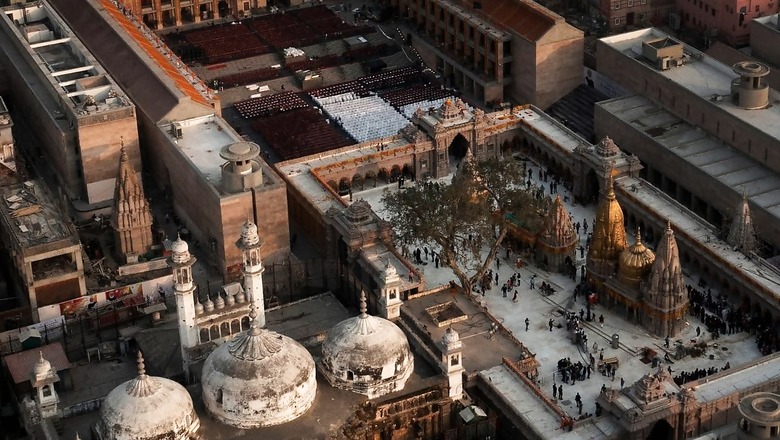
views
The Supreme Court on Friday allowed the ASI to conduct a scientific survey at the Gyanvapi mosque complex in Varanasi, refusing the Muslim side’s demand to keep the report of that survey in a sealed cover. The SC bench, headed by Chief Justice of India DY Chandrachud, said: “Having regard to nature and ambit of the court-appointed commissioner and safeguards placed by the HC, we’re unable to interfere with the order.”
Keeping in mind concerns raised by the Muslim side on impact to the structure of the 17th-century mosque, the top court said non-invasive techniques will be used during the survey. The ASI had put the survey exercise on hold on July 24 as the Allahabad High Court was hearing a petition against it. It resumed the survey in the morning after a go-ahead from the HC on Tuesday (August 3).
This comes as a relief to the Hindu side, as the SC refused to stay the HC order allowing the survey that is being conducted to determine if the historic mosque was built upon a pre-existing temple.
‘Why should we interfere at this stage?’
A bench comprising CJI Chandrachud and Justices JB Pardiwala and Manoj Misra asked the ASI not to take recourse to any invasive act during the survey. It took note of the submissions of solicitor general Tushar Mehta, appearing for the ASI and the Uttar Pradesh government, that no excavation will be carried out during the survey nor any destruction caused to the structure. Mehta took the court through how the ASI survey will be conducted.
The SC said it is primarily concerned with the HC order, and that the court has made the ASI stand by an affidavit that no excavation will take place during their survey. “On your Order VII Rule 11, subject to hearing, we’ll issue notice. So far as the survey is concerned, since all these safeguards have been ensured… After all it’s in an interlocutory order, why should we entertain? It’s an interlocutory order. Why should we interfere at this stage? We’ll keep all other objections you have to the commissioner’s report, open. We’re not saying that it’s admissible or should be relied upon… that can be argued,” the CJI told senior advocate Huzefa Ahmadi, who is representing the Muslim side in the case.
‘Issue about what the religious character of the place is’
Ahmadi said conducting the survey is contrary to the Place of Worship (Special Provisions) Act. To this, Madhavi Diwan, representing the Hindu side, said the HC order is “not prejudicial” but not determinative or adversarial in any manner. She said the issue is about what the religious character of the place is.
“The court in its discretion has directed a survey. It would amount to disablement to indict a survey so far as the rights of both parties are concerned. Nothing is closed at this juncture and it is not determinative in any manner. The representatives have been present. We would encourage full transparency. So far as being barred by the POW Act is concerned, the issue is about what the religious character of the place is. There has been continuity of worship for a long time on a daily basis and it was stopped in 1993…”
Diwan said there were signs and symbols at the site and a logical conclusion should be drawn by way of a scientific survey.
The CJI, while announcing the order, said the HC has recorded the statement of the additional director-general of ASI and additional solicitor general appearing for the central government, that no excavation will take place. “In this backdrop that the HC observed, that since the department of archaeology had expressed that no damage will be caused, the survey could be carried out,” he said.
“The frame of the plaint indicates that as per the plaintiff both before and after 1947 there was continuous religious worship… and that the ASI’s job was to maintain such properties and, thus, there shall be no such damage. The order of trial judge was set aside in first appeal… it was argued that such an ASI survey order was set aside by HC on appeal,” he said.



















Comments
0 comment